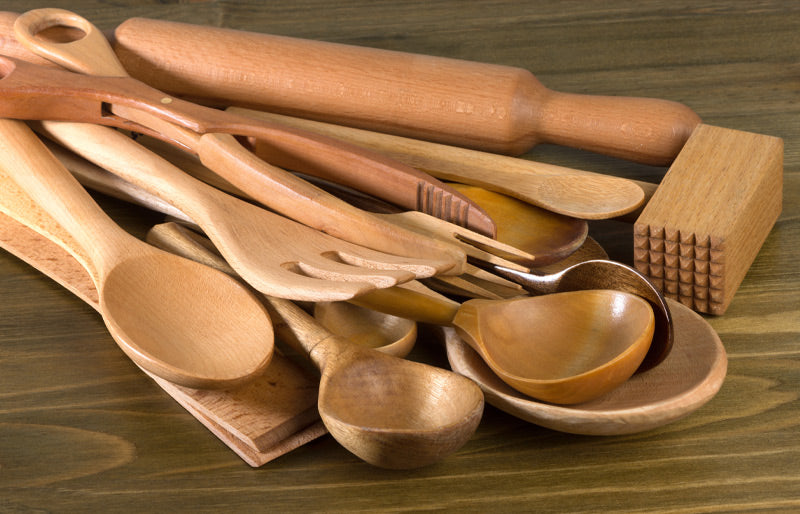The Timeless Elegance and Practicality of Wooden Utensils in the Kitchen

Introduction
In the fast-paced world of modern culinary arts, where stainless steel, silicone, and plastic utensils dominate kitchen spaces, the humble wooden utensil stands as a timeless and reliable choice. Wooden utensils have been an integral part of kitchens across cultures for centuries. Their enduring popularity is not just a matter of tradition but also a testament to their numerous benefits. In this article, let's explore why wooden utensils continue to hold a special place in the hearts of chefs and home cooks alike.
1. Gentle on Cookware
One of the primary advantages of wooden utensils is their gentle nature. Unlike metal utensils, wooden counterparts are less likely to scratch or damage the surface of non-stick and ceramic cookware and bowls. This makes them an ideal choice for preserving the longevity of your pots and pans while ensuring your investment in quality cookware lasts longer.
2. Heat Resistance
Wooden utensils do not conduct heat as metal utensils do. This means they won’t get too hot to handle, even when stirring hot sauces or soups for extended periods. Additionally, their heat resistance prevents them from reacting with acidic foods, ensuring the taste and quality of your dishes remain uncompromised.
3. Versatility
Wooden utensils come in an amazing wide array of shapes and sizes, making them versatile tools in the kitchen. (In some cases, they're practically art - see more below.) From spatulas and spoons to ladles and tongs, there's a wooden utensil for every culinary task. Their natural flexibility allows them to adapt to the shape of the cookware, making stirring, flipping, and serving a breeze.
4. Environmentally Friendly
In an era where sustainability is paramount, wooden utensils shine as an eco-friendly choice. They are biodegradable and renewable, often sourced from responsibly managed forests. Choosing wooden utensils over plastic ones may likely contribute to reducing plastic waste and the overall environmental impact, making them a conscientious choice for environmentally aware consumers.
5. Aesthetic Appeal
Wooden utensils add a touch of warmth and rustic charm to any kitchen. Their natural grain patterns and earthy tones bring a sense of authenticity to the cooking experience. Beyond their functionality, they serve as decorative elements, enhancing the visual appeal of your kitchen space.
6. Ergonomic Design
Wooden utensils are typically lightweight and comfortable to hold, reducing strain during prolonged cooking sessions. Their ergonomic design makes them easy to grip, allowing for precise control and effortless maneuvering, which is essential for delicate cooking techniques.
Conclusion
In a world where innovation constantly shapes our choices, the enduring popularity of wooden utensils in the kitchen is a testament to their practicality, aesthetics, and eco-friendliness. Their gentle nature, heat resistance, versatility, environmental friendliness, aesthetic appeal, and ergonomic design make them indispensable tools for both professional chefs and home cooks. Embracing the art of cooking with wooden utensils not only enhances your culinary experience but also honors a tradition that has stood the test of time. So, the next time you step into your kitchen, consider reaching for these timeless tools and experience the difference they can make in your cooking journey!
